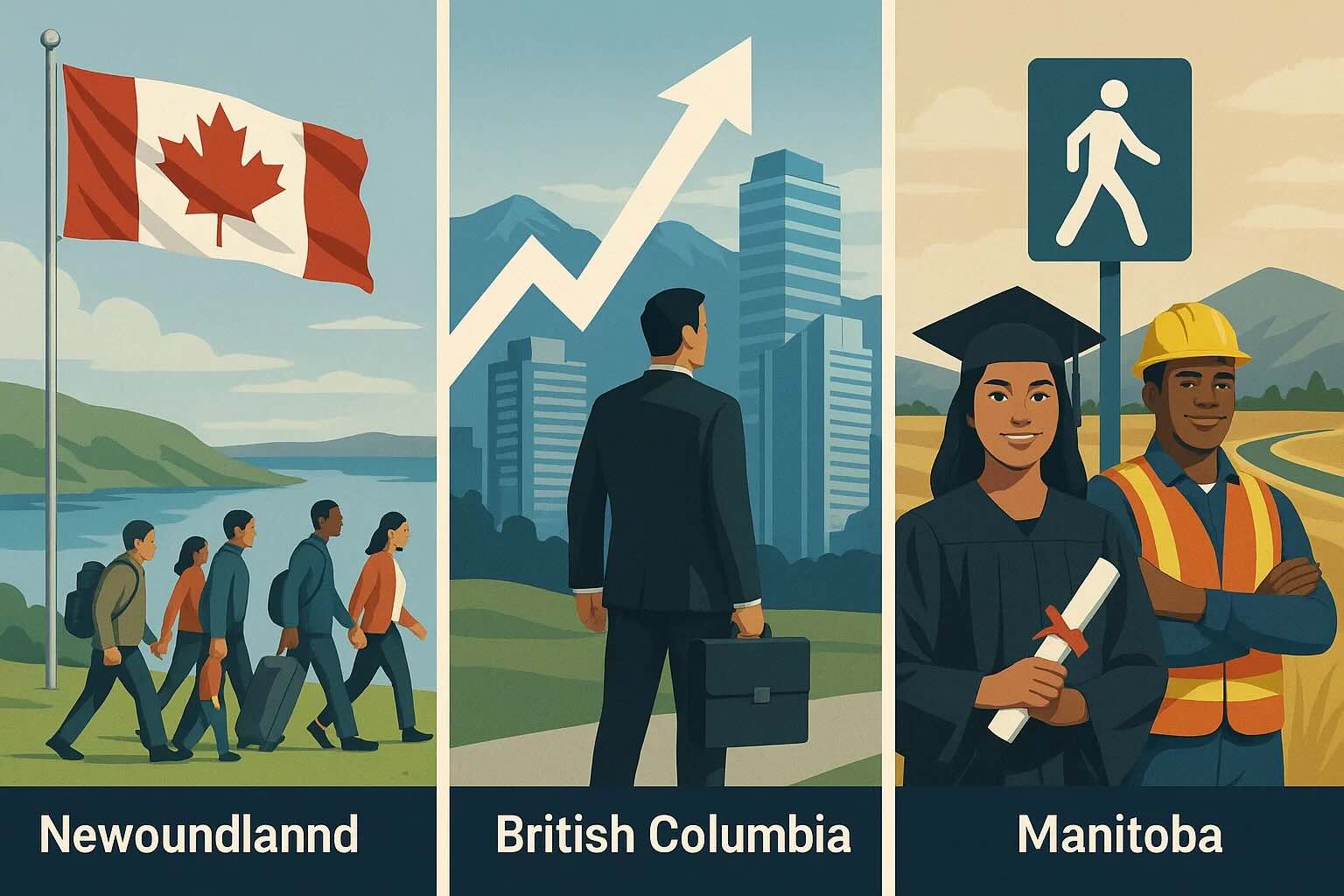For foreign nationals wishing to work in Canada, work permit applications are typically processed outside the country before arrival. However, Immigration, Refugees and Citizenship Canada (IRCC) has recently reiterated that nine special circumstances exist, allowing eligible individuals to submit work permit applications directly from within Canada. This policy offers significant convenience for specific groups already in the country. Applicants not meeting any of these nine conditions must apply online from abroad or, if eligible, at a port of entry.
Nine Special Scenarios for In-Canada Work Permit Applications
1. You have a valid study or work permit
Applicants must already possess a valid study or work permit issued by IRCC and be physically present in Canada. Crucially, the new work permit application must be submitted before the existing permit expires. IRCC recommends applying at least 30 days before the current permit's expiry. For example, an employee on an employer-specific work permit who is terminated but secures a new job offer and applies for a new work permit 31 days before their worker status expires may still be considered under this category.
2. Your spouse, common-law partner, or parent has a valid study or work permit
If an applicant's spouse, common-law partner, or parent was permitted entry to Canada to study or work, and their permit has not yet expired, the applicant may apply for a work permit from within Canada, provided they meet all general work permit eligibility requirements. For instance, if a spouse just completed a four-year program at an Ontario university 10 days ago, and study permits are typically valid for the program length plus 90 days, their partner still has 80 days to apply for a work permit from within Canada.
3. Your study permit is valid and you qualify for a Post-Graduation Work Permit (PGWP)
International students in Canada on a valid study permit, if eligible, have 180 days from the date their school issues final marks to apply for a PGWP. A PGWP is an open work permit, allowing work for almost any Canadian employer. Graduating from a Designated Learning Institution (DLI) does not automatically grant PGWP eligibility; applicants must meet all specific criteria, including those related to their study program and physical location, and their study permit must be valid at the time of application.
4. You, your spouse, or parent has a temporary resident permit (TRP) with a validity of six or more months
A Temporary Resident Permit (TRP) allows individuals otherwise inadmissible to Canada to enter temporarily for compelling reasons (e.g., business travel, visiting a seriously ill family member) if their entry doesn't pose a risk to Canadian society. To apply for a work permit from within Canada under this scenario, the TRP held by the applicant, their spouse, or parent must have a validity of at least six months.
5. You have submitted an application for permanent residence under specific classes and are awaiting a decision
Individuals who have applied for permanent residence and are awaiting a decision may be eligible to apply for a work permit from within Canada. IRCC specifies this applies to those awaiting decisions on PR applications under the Spouse or Common-law Partner in Canada class, the overseas family class, or the TRP holder class. For example, a temporary foreign worker on an employer-specific work permit, living in Canada with their Canadian citizen spouse, who has submitted an inland sponsorship application and received an Acknowledgement of Receipt (AOR), may be eligible to apply for an open work permit if they can prove a genuine relationship and cohabitation.
6. You’re allowed to work in Canada without a work permit, but require one for a different job
Certain individuals can work in Canada without a permit (e.g., foreign representatives, military personnel, performing artists, clergy; business visitors do not qualify). If such individuals wish to take on a different job that does require a work permit, they can apply from within Canada. Individuals on maintained status (who applied for a new permit before their old one expired) can also continue working under the conditions of their expired permit.
7. You are in Canada as a professional, intra-company transferee, trader, or investor under CUSMA
Under the Canada-United States-Mexico Agreement (CUSMA), eligible U.S. or Mexican citizens in these categories with a qualifying job offer can apply for work permits from within Canada. This includes professionals in one of 63 eligible professions, intra-company transferees (executives, managers, specialized knowledge workers), traders engaging in substantial trade, and investors making substantial investments.
8. You will or already have made a claim for refugee protection
Individuals present in Canada who have applied to IRCC for refugee protection (asylum) may be eligible to apply for a work permit from within Canada. Applicants must demonstrate a well-founded fear of persecution or risk of torture, threat to life, or cruel and unusual treatment if they return to their home country, based on race, religion, political opinion, nationality, or membership in a particular social group. Stateless individuals unable to return to their country of normal residence for similar reasons may also be eligible.
9. You are a Convention refugee or protected person
If the Immigration and Refugee Board of Canada (IRB) has determined an individual meets the criteria for a Convention refugee, or if they are deemed a protected person (including a positive decision on a Pre-Removal Risk Assessment - PRRA by IRCC), they may be eligible to apply for a work permit from within Canada, provided all other criteria are met.
About "Maintained Status"
All temporary residents (visitors, workers, students) are expected to leave Canada at the end of their authorized stay. However, "maintained status" allows individuals to legally remain in Canada beyond their permit's expiry if they have applied for a new permit (e.g., work permit extension) before the original one expires. During this period, they can continue to work or study under the conditions of their original permit until IRCC decides on their application. Crucially, leaving Canada while an application is pending results in the loss of maintained status.
How to Apply for a Work Permit from Within Canada
Applicants must meet the specific requirements for the work permit they are applying for. Most applications are submitted online through an IRCC secure account, unless an exemption applies (e.g., disability, online application issues, or applying for a study/work permit and a TRP simultaneously).
The application process generally involves:
- Reading the instruction guide thoroughly.
- Ensuring all eligibility requirements for the specific scenario are met.
- Meeting general work permit eligibility requirements: satisfying an officer of intent to leave Canada after employment, proving sufficient funds, being criminally and medically admissible, and not posing a security risk. Providing police certificates, biometrics, and/or undergoing a medical exam if requested by IRCC.
- Completing the appropriate forms as per the auto-generated document checklist.
- Providing primary and supporting documentation relevant to the unique situation.
- Paying applicable fees: work permit processing fee (CAD $155), open work permit holder fee (if applicable, CAD $100), and other fees like biometrics (CAD $85).
- Submitting the application and awaiting IRCC's decision.
Applicants should keep copies of all documents, filled forms, and payment receipts. The current processing time for work permit applications submitted from within Canada is approximately 233 days. A work permit will not be issued beyond the expiry date of the applicant's travel document (e.g., passport); therefore, checking passport validity and renewing it if needed before applying is essential.









